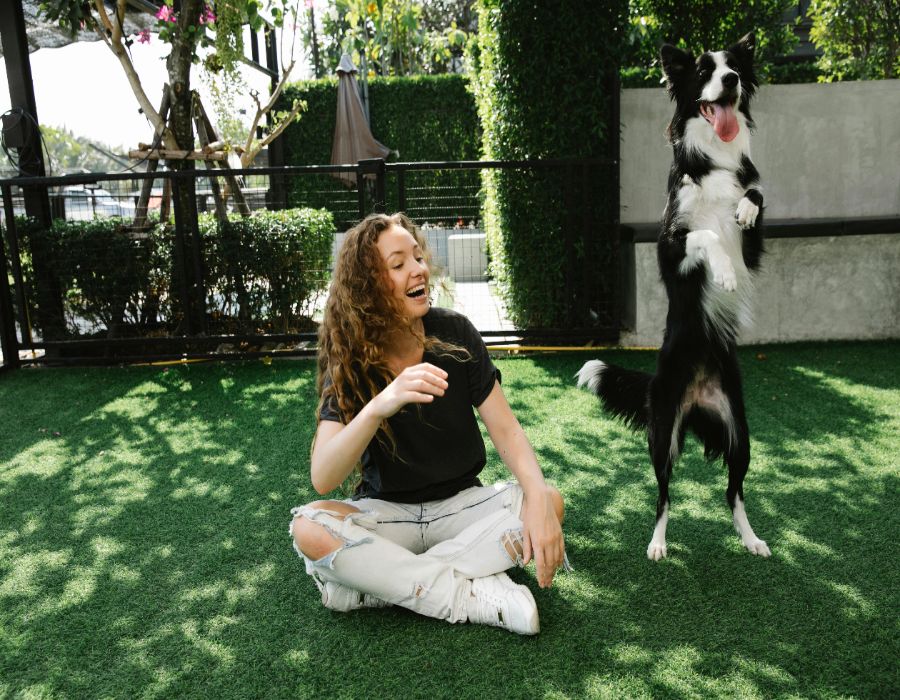8 Reasons Why Shouting At Your Dog Is Ineffective And What You Should Do Instead
Communication is key when it comes to training your dog, but how you communicate matters just as much as what you’re trying to say. Many dog owners resort to shouting when their pets misbehave, thinking it will correct unwanted behavior. However, yelling often creates more problems than it solves.
Dogs thrive on consistency, clear signals, and trust, none of which are fostered by raising your voice. Shouting can confuse your dog, damage your bond, and even worsen their behavior. Understanding why this approach is ineffective can help you adopt better strategies to guide your furry friend.
Dogs Don’t Understand Words Like Humans Do

Shouting at your dog doesn’t help them understand what they did wrong. Dogs respond to tone and body language rather than the actual words, so yelling might only signal anger without teaching them what behavior to change.
It Can Increase Fear and Anxiety

Yelling can make dogs scared of you, especially if it’s a repeated behavior. Fearful dogs are more likely to develop anxiety-related issues, which can manifest as aggression or destructive tendencies.
It Can Escalate Bad Behavior

Instead of correcting their actions, shouting might overstimulate or stress your dog, leading to further disobedience. For instance, excitable dogs might interpret your yelling as play or attention.
It Damages Trust and Bonding

Your dog relies on you for guidance and comfort. Shouting breaks the trust between you and your pet, making it harder for them to feel secure and follow your commands.
It Doesn’t Address the Root Cause

Yelling focuses on the immediate issue without solving the underlying problem. Dogs misbehave for reasons like boredom, confusion, or lack of training. Addressing these causes is far more effective than raising your voice.
Shouting Can Lead to Learned Helplessness

When dogs are frequently subjected to yelling without clear guidance, they may develop a sense of helplessness, believing they have no control over their environment. This learned helplessness can manifest as withdrawal, lack of initiative, or a decrease in responsiveness to commands
Dogs May Associate Yelling with Reward

Interestingly, some dogs might perceive your raised voice as attention, even if it’s negative. This unintended reinforcement can encourage the very behaviors you’re trying to correct. For instance, a dog that barks to get your attention may find that yelling at them, even in anger, serves as a form of interaction, thus reinforcing the barking behavior.
What Should You Do Instead?

Check out ways you can correct your dog’s behaviour.
Use Positive Reinforcement

Reward good behavior with treats, praise, or playtime. Dogs respond well to rewards, making them more likely to repeat desired actions. For example, if your dog sits on command, immediately reward them to reinforce the behavior.
Set Clear and Consistent Commands

Use simple commands like “sit” or “stay” and ensure all family members use the same words and hand signals. Consistency helps your dog understand expectations and reduces confusion. Pair commands with a calm tone to avoid overwhelming them.
Redirect Negative Behavior

Instead of shouting, redirect your dog’s attention when they misbehave. If your dog is chewing on furniture, offer a chew toy as an acceptable alternative. This method helps them understand what they can and cannot do.
Provide Mental and Physical Stimulation

Many behavioral problems stem from boredom or pent-up energy. Engage your dog with regular walks, playtime, and puzzle toys to keep them mentally and physically stimulated. A tired dog is less likely to misbehave.
Address Triggers

Identify the root cause of your dog’s behavior. Is your dog barking excessively because they’re anxious? Are they destructive due to separation anxiety? Understanding the trigger allows you to address the problem directly, whether through desensitization training or providing comfort.
Conclusion

Shouting at your dog is not only ineffective but also harmful to their well-being and your relationship. Dogs need guidance through understanding, patience, and positive reinforcement. By shifting to more constructive methods, you can create a harmonious bond and encourage better behavior in your furry friend.







